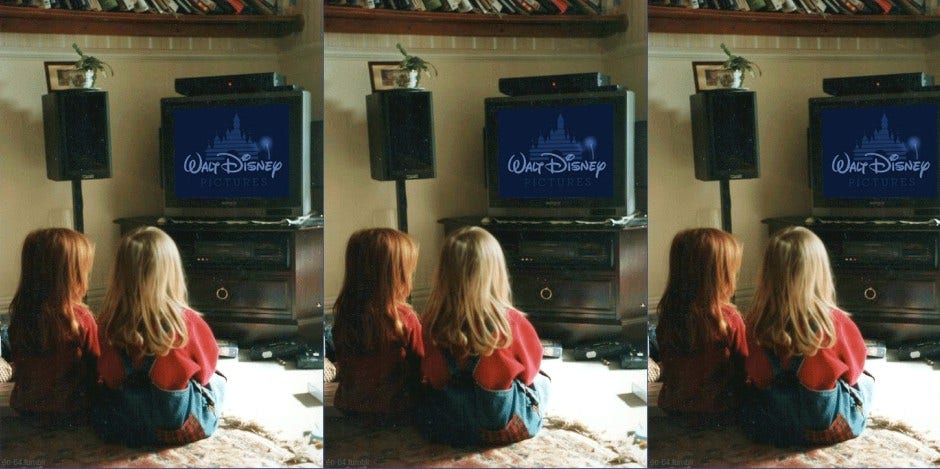What It Feels Like To See Your Child Make Their First Best Friend
As a parent, I feel marvel and awe, watching this attempt at friendship.
 weheartit
weheartit By Kate Steilen
I take pride in knowing that I'm the object of my daughter's affection. I get the unbreakable crab hugs and the triple kisses. I am provider of facts, art critic, and style guide. I know where the hair things are, where the chocolate is hidden, and when school is serving sloppy joes. It's a powerful position.
Until your kid finds a new love.
My kindergartner has her first best friend. I know this because each day, after school, she calls me her best friend's name, instinctively, confidently, unconsciously, and lovingly. I am called "A." My husband gets called "A." Our younger daughter gets called "A."
We have been replaced, in the time-order, by her school companion, a classmate, her bestie.
In general, little is reported from happenings at school. What is reported concerns the state of A. It could be a quote from A, a story from A's past, or one of A's grand ideas. It might be something A's brother said, or a joke A's grandfather invented — he is credited with the "Boo-Who?" knock-knock joke. Life with A is like a new world my child revels in.
One of the great powers of friendship is fantasy. Now that she has A, many of my daughter's dreams involve what she and her friend might do. Sleepovers. Amusement parks. Swimming. Snail hunting. My daughter no longer thinks primarily about herself and her own wishes, and this is new, this is actually a giant leap outside of herself.
If anything bothers me about my young children, it is that empathy isn't a natural human trait. My kids don't automatically see how I feel, and as a parent, it can feel like an insult, their selfishness, or their inability to grasp that you, too, are vulnerable and have a heart. A child starts out with one single perspective — theirs. But friendship is a shift into accepting an other. It is the first time I've seen my kid care in this way, beyond herself, beyond fun and admiration.
What strikes me most about my child's new friend is how much their interaction resembles first love, or even a proto-marriage. Basically it's a great partnership. It is probably the closest to being in love that my young child has been, in that it's clear how sweetly she loves this non-family member.
If she is doing something, she wants to do it with A. When she is drawing, now, A is either her subject or the recipient of her work. She makes her cards, and gives her small treasures from home, like Chapstick and gems. Her friend is someone she relies on. Someone she shares little things with. Builds fairy houses with. Catalogs experiences with. A is her first friend who bears conflict; the disagreements no longer involve the threat not to be friends anymore (which is probably unthinkable to either of them now). Instead, they are honest. For example, "You are being mean!" involves a long discussion of how the other "doesn't know how she's being mean." The two work at understanding one another. Neither child in the relationship feels insecure about the status of the relationship. They express themselves and move on.
As a parent, I feel marvel and awe, watching this attempt at friendship. They are working on a relationship that is beneficial and mutual, yet hard and confusing. The joys, however, are many. The two share a nonsense language they call "alien." Recently, their teacher commented that both girls are living in the "same dream world," and I laughed.
The fact that my child has made a friend is a relief. There are times when I wonder why I send my child to school. When the days are long and there's not enough recess and someone's mean to her and even the adults sound passive-aggressive. It's difficult to see your child weather their first conflicts, on their own, without your protection. She can have a bad week, and you just want to move cities.
But when I see her building relationships outside the home, and seeking and being an ally in a challenging environment, it makes me think that her education is not a burden, not a method happening to her, but a thing of her own making. And it's rewarding, as a parent, to see your child experience charity and love.

